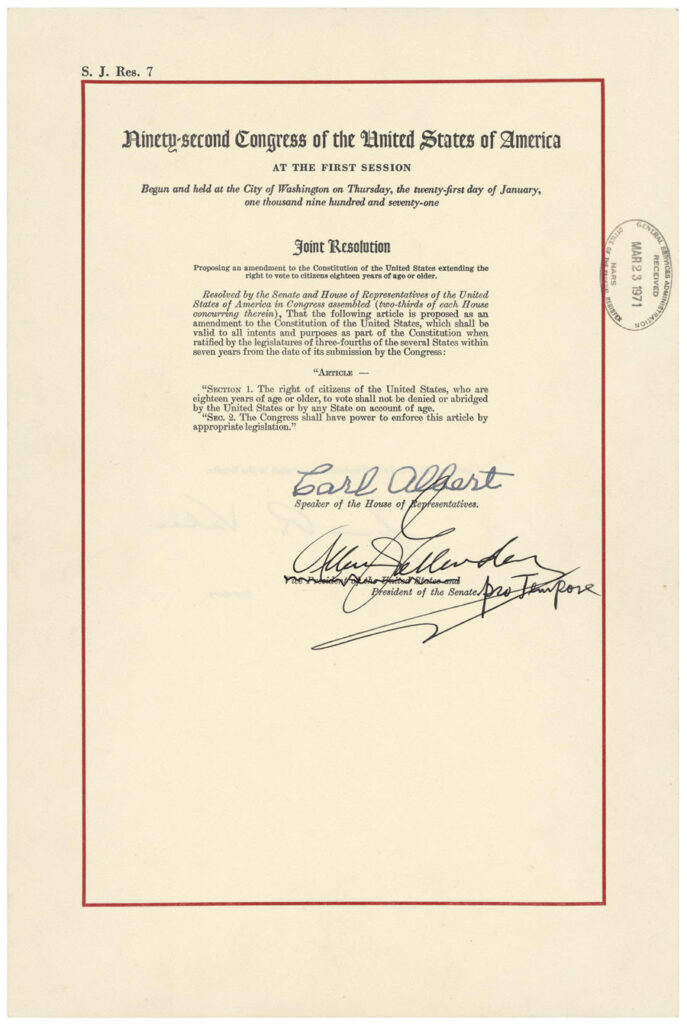The 26th Amendment
A significant turning point in American history was the ratification of the 26th Amendment to the United States Constitution. Millions of young Americans now have the ability to vote thanks to the reduction of the voting age from 21 to 18.

Background and Context
The campaign to lower the voting age gathered steam in the 1960s, when the Vietnam War was still raging. Young people in the United States argued that since they were old enough to be drafted into the military and defend their nation, they also deserved the right to vote. Many citizens strongly identified with this viewpoint, which fueled the movement for change.
Congressional Action
On March 23, 1971, Congress passed the 26th Amendment in response to the growing call for a lower voting age. Senator Birch Bayh of Indiana proposed the amendment, which was intended to address the disparity between the voting age and the age of military service.
Ratification Procedure
The 26th Amendment was sent to the states for ratification after being approved by Congress. Three-fourths (38) of the state legislatures were required for approval under the usual ratification procedure. However, Congress included a seven-year deadline for ratification, which was later extended to ten years, in recognition of the significance and urgency of the matter.

Quick Ratification
The 26th Amendment holds the title of being ratified the quickest in American history. The states adopted it quickly, demonstrating the measure’s broad support. The 38th state (North Carolina), which ratified the amendment three months after Congress approved it, did so on July 1, 1971.
Effect
The 26th Amendment’s ratification significantly altered the electoral system in the United States. It gave millions of young people the right to vote, enabling them to take part in the democratic process and have a say in how the nation’s future is shaped. Young voters’ influence grew in importance in subsequent elections, underscoring the significance of their participation in politics.
An important step toward extending the franchise and recognizing the rights of young Americans was the 26th Amendment’s ratification. It demonstrated an understanding that civic obligations like voting shouldn’t be restricted based solely on age. The amendment is proof of the effectiveness of citizen activism and the power of the democratic process to bring about change.

